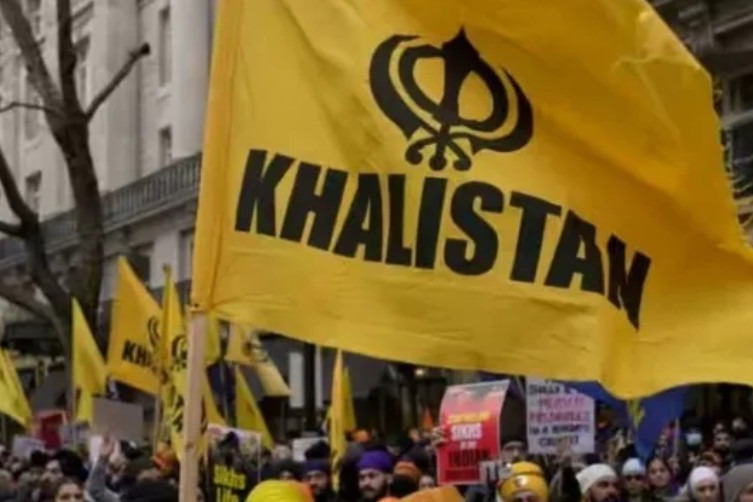Canada’s top intelligence agency has sent a strong and clear message. It confirmed that Khalistani extremists are using Canadian land as a base.
CSIS Verifies India’s Long-Standing Charge
These extremists are planning and promoting violent activities. Their main target is India. This information came from the Canadian Security Intelligence Service (CSIS). CSIS shared this unsettling fact in its 2024 annual report.
According to the report, these extremist elements not only speak about their cause but also actively raise funds, spread propaganda, and plan violence from inside Canada.
The report states:
“Khalistani extremists continue to use Canada as a base for the promotion, fundraising or planning of violence primarily in India.”
India has been saying for many years that people who want to harm the country under the name of Khalistan have turned Canada into a safe shelter.
The CSIS report also underlines that this issue is not new. Since the mid-1980s, some Canada-based Khalistani extremists (CBKEs) have been trying to use violent means to push for their goals. These actions are part of what CSIS calls Politically Motivated Violent Extremism (PMVE). This is different from peaceful protests or speeches. The report makes it clear that only a small group is involved in such violent plans, but their actions are still very serious.
Only 26 in the World—And One’s at War: Canada’s Strike on Russia’s Rare Supercargo
CSIS Report Points to Violence and Foreign Interference
The CSIS report gives more details about how Khalistani extremists operate from Canadian soil. It says that although the group is small, their activities have serious effects. In addition to gathering and demonstrating, these radicals utilize Canada as a base to plan violent acts and raise money.
These actions are aimed mainly at India, and this situation has affected India-Canada relations in a big way. The report says:
“Real and perceived Khalistani extremism emerging from Canada continues to drive Indian foreign interference activities in Canada.”
This means that because India sees these activities as a threat, it tries to watch and counter them, even outside its own country. The report mentions that India has taken steps to deal with these threats in Canada itself.
The Canadian report also tries to separate peaceful supporters of Khalistan from violent ones, saying that only a certain section engages in promoting or planning violence. However, the fact that such plans are being made in Canada remains a serious concern.
This confirmation from Canada comes during a sensitive time, following the 2023 assassination of Hardeep Singh Nijjar, a known Khalistani terrorist who was shot in British Columbia. Canadian authorities blamed India for the killing, but India called these charges baseless and absurd, pointing instead to Canada’s failure in curbing extremist elements.
JAS-39 Gripen Rejected? U.S. May Force Canada Into F-35 Deal with No Way Out
Report Comes After Key Meeting Between Indian and Canadian Leaders
The CSIS report’s release happened shortly after an important meeting between Indian Prime Minister Narendra Modi and Canadian Prime Minister Mark Carney during the G7 Summit in Alberta. At this summit, the two leaders talked about fixing diplomatic ties, which had become tense after Nijjar’s killing.
They agreed to appoint new high commissioners and to restart trade talks, even though issues related to national security and extremism are still causing strain in their relationship.
Despite pressure from Sikh groups and some Canadian lawmakers, Prime Minister Carney supported his meeting with PM Modi. He said that India is too important globally and that talking openly is better than avoiding tough subjects.
The CSIS report did not mention any Khalistani extremist attack on Canadian soil in 2024, but it did say that the threat of violence targeting India from inside Canada remains a major issue.
The report also stated that the Khalistan movement remains the main example of politically motivated violent extremism in Canada. Canada faces different types of threats. But the Khalistani threat stands out. This is because it involves violence planned outside Canadian borders.
The CSIS report marks the first official confirmation from Canadian intelligence. It supports what India has been warning about for decades. Canada allows radicals from the Khalistani movement to operate. These extremists use Canadian land to organize and encourage acts of violence against India.

